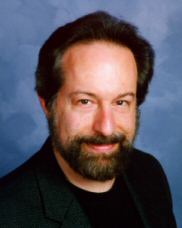A Quote by Seth Shostak
While human space travel is daunting, machines - with their indefinitely long lifetimes - could travel the galaxy. It might make little difference to them that bridging the distance from one star to the next could take hundreds of thousands of years or more.
Related Quotes
Today, we know that time travel need not be confined to myths, science fiction, Hollywood movies, or even speculation by theoretical physicists. Time travel is possible. For example, an object traveling at high speeds ages more slowly than a stationary object. This means that if you were to travel into outer space and return, moving close to light speed, you could travel thousands of years into the Earth's future.
With space travel, [it's] no different. You know, in 1990 I read the name Virgin Galactic Airways. Loved the name. And set out to try to find an engineer or rocket scientist in the world who could build a safe, reusable rocket that could take people to and from space and we could start a whole new era of commercial space travel.
We travel, initially, to lose ourselves; and we travel, next to find ourselves. We travel to open our hearts and eyes and learn more about the world than our newspapers will accommodate. We travel to bring what little we can, in our ignorance and knowledge, to those parts of the globe whose riches are differently dispersed. And we travel, in essence, to become young fools again- to slow time down and get taken in, and fall in love once more.
The first voyagers to the stars will be creatures whose life cycle is matched to the voyage: the aeons involved in traversing the galaxy are not daunting to immortal beings. By the end of the third millennium, travel to other stars could be technically feasible. But would there be sufficient motive?
Space travel is a dream for many men and women. I think my trip will be perceived differently by different genders because for women, a lot of time, not only space travel, it's not accessible to everyone, but is even less accessible to women, there are a lot more barriers for them especially if they live in countries where things like space travel, engineering, any science and technology-related field would be considered a more male-dominated field. And so I want to show them that there is nothing preventing woman, or making them less qualified to be involved in any of these fields.
I have my own set of survival techniques. I am patient. I know how to pack light. But my one might travel talent is that I can make friends with anybody. I can make friends with the dead. If there isn’t anyone else around to talk to, I could probably make friends with a four-foot-tall pile of sheetrock. That is why I’m not afraid to travel to the most remote places in the world, not if there are human beings there to meet. People asked me before I left, “do you have friends [there]?’ and I would just shake my head no, thinking to myself, But I will.





































